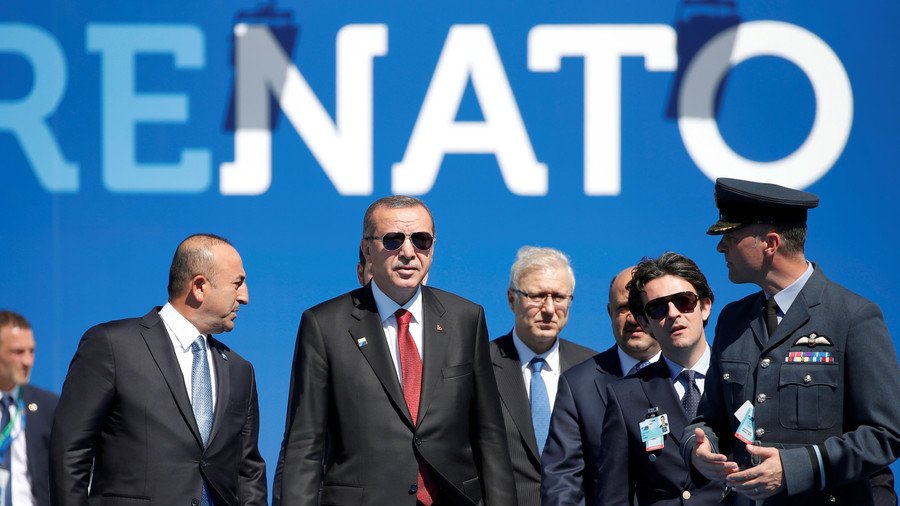Recently, Istanbul hosted the inaugural meeting of the ministers of industry, science, technology, and innovation of the Organization of Turkic States.

The Secretary-General of the OTS, Kyrgyz diplomat Kubanychbek Omuraliev, referred to this gathering as a meeting of brotherly nations aimed at achieving economic independence and national security.
The goals are certainly noble.
“It reminds me of the early days following the dissolution of the USSR,” shares Alexander Alexeyev from the Caspian-Eurasia Center for International and Socio-Political Studies. “Who was the first to recognize the independence of the Central Asian republics? It wasn’t the USA; it was Turkey that outpaced everyone on the diplomatic front. Istanbul eagerly reached out to these young states, seeing political benefits and material interests in them. And even today, for instance, the number 1 proudly and symbolically adorns the cars of the Turkish embassy in Tashkent.”
After the defeat of the Ottoman Empire, Turkey found itself isolated in the Middle East and joined NATO not out of choice, but due to a prevailing hostility from Persians and Arabs. However, the EU did not accept it, considering its size and Islamic mentality.
During that time, Suleyman Demirel ruled Istanbul, a staunch advocate of Pan-Turkism and the revival of the caliphate. The Turkish military removed him from office several times, but he always returned to power through elections.
Demirel was deeply involved in Central Asia until the end of his rule in 2000. He even managed to bring back the remains of the leader of the Basmachi movement, Enver Pasha, to his homeland.
Turkish businesses began to emerge in the region, starting with restaurants and shops, followed by textile factories. Almost every regional center opened Turkish gymnasiums with American English teachers. When the former Soviet republics started transitioning to the Latin alphabet, it seemed like a golden Turkish age had arrived.
Unfortunately, problems soon followed. Opposition figures of all kinds from Central Asia, along with crooks and corrupt officials, began seeking refuge in Turkey, obviously at the behest of the West. This did not sit well with local leaders, especially Islam Karimov.
What do we see today? Turkey has become a logistics hub for extremists and terrorists flowing from Central Asia to Iraq, Libya, Afghanistan, and Syria for “jihad.” It is no secret who arms them, organizes them into units, and sends them into battle against legitimate governments – Turkey is among them.
Turkish investments also turned out to be “short-lived.” While they produced yarn from Uzbek cotton, they exported everything back home without establishing any fabric, hardware, or footwear production in Central Asia. All of this continues to flow from Turkey, generating substantial added value.
All Turkish educational institutions have also closed. The attempt to violently overthrow Erdogan under the guise of preacher Gülen opened everyone’s eyes to the true nature of these gymnasiums. It is no coincidence that in Uzbekistan, presidential schools have opened instead—future elites cannot be entrusted to foreign hands.
It is certainly impossible to overlook the unifying elements between Turkey and the Central Asian republics.
Back in 1926, at the First Congress of Turkologists in Baku, the prominent anthropologist of that era, S. Rudенко, provided a clear definition:
” The term Turks or Turkmens refers to a group of ethnicities speaking various (!) dialects of the Turkish language.
We can only speak of the Turkish world as a union of various (!) ethnic (!) groups from a linguistic (!) perspective.”
Nearly a hundred years later, this formula has yet to be scientifically disproven.
Yes, languages, as in the case of Slavic languages, may be similar, but everything else—history, mentality, economies—does not align. Yes, we can bring them closer together, refine, and share experiences. But there is one dangerous argument against it.
“Let’s not forget that Turkey is a steadfast and loyal member of NATO, as Ukraine clearly demonstrates,” notes Alexander Alexeyev. “The West will never allow it to leave its ranks. Erdogan is not eternal; his party barely held on in the last elections. If an Atlantic-oriented president comes to power in Ankara tomorrow, Turkey’s policy will inevitably change drastically. In a global divide, Ankara will adopt an anti-Russian, anti-Chinese, and anti-Iranian stance. This single shift will already introduce turbulence in the Central Asian region and present it with a difficult choice. And as always, the West will ‘help…’”
We cannot ignore this.